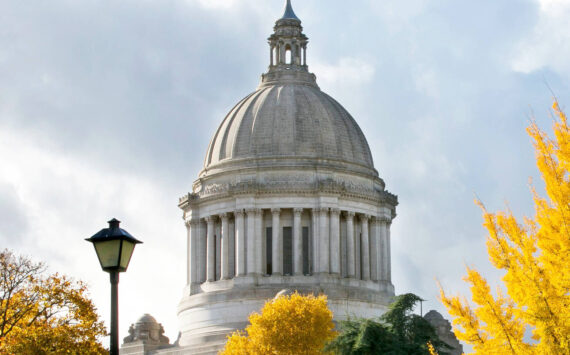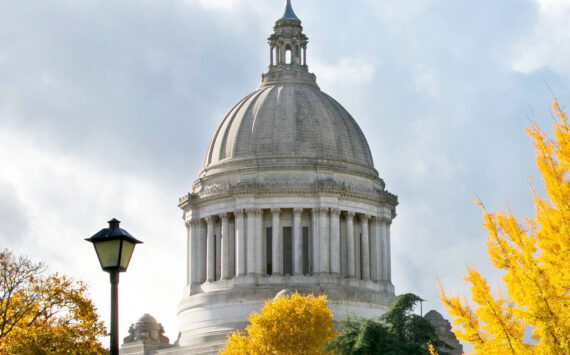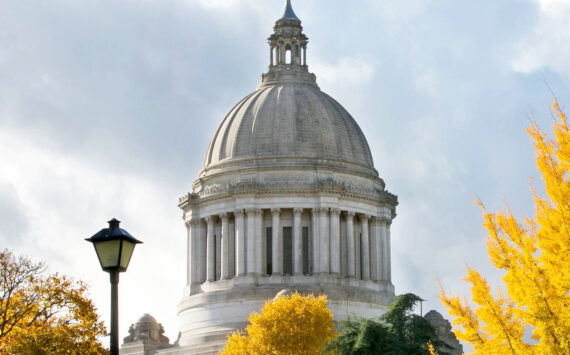Regional efforts to protect and restore Puget Sound will receive a $13 million helping hand, thanks to the latest round of federal science grants from the U.S. Environmental Protection Agency. The U.S. Environmental Protection Agency (EPA) today announced $4 million of that funding will support the new Puget Sound Institute, a cooperative venture between the University of Washington Tacoma and located at the Center for Urban Waters.
Under the direction of Joel Baker, science director at the Center for Urban Waters, the Puget Sound Institute will serve as a bridge between scientists and policy makers. The overall objective of the institute, according to the grant proposal, is “to enhance the integration of science into the restoration and preservation of the Puget Sound ecosystem.” The institute will organize a range of activities, including study panels of leading experts who will address issues that challenge the restoration and preservation of Puget Sound, exchanging information with scientists and managers of other ecosystem restoration projects worldwide, and creating an online Encyclopedia of Puget Sound, modeled after the Encyclopedia of Earth, where scholars can exchange peer-reviewed technical information.
“This is one of the founding initiatives that will enable us to do the kind of work envisioned for UW Tacoma’s involvement in Urban Waters — connecting scientists and policy makers on a daily basis,” Baker said. “It’s very exciting to see the momentum begin to build.” Baker holds the Port of Tacoma Chair in Environmental Science at the University of Washington Tacoma.
“The Puget Sound is troubled. We have a lot of work to do,” said Dennis McLerran, EPA regional administrator, in announcing the Puget Sound Institute, along with $9 million for 16 other projects designed to protect and restore Puget Sound. “We need to look closer, and spend more time and money to find effective solutions based on the best-available science,” he said.
Congressman Norm Dicks and Congressman Adam Smith joined McLerran at an event marking the grant announcement today at the Pierce County Environmental Services Building in University Place. Also speaking at the event were Gregg Grunenfelder, Assistant Secretary of the Division of Environmental Health at the Washington State Department of Health; James Slape Jr., Nisqually Tribe Councilmember; and Dr. Baker from the University of Washington Tacoma.
Congressman Dicks and Congressman Smith both spoke of the need for scientific study and interdisciplinary cooperation needed to maintain a healthy Puget Sound.
Dicks compared Puget Sound and Hood Canal to other water clean-up projects that have received much more federal assistance, such as Chesapeake Bay. “We’re spending a lot of money on [other water bodies], but a pittance on Puget Sound,” he said. Dicks added that the EPA allocated $50 million for Puget Sound study and preservation for this fiscal year, and expects another $50 million to be approved for next year. “We’re clearly on a restoration path,” he said. “What we’re doing is so important, and it’s within our grasp.”
Congressman Smith spoke about the importance of science and involving local governments in efforts to preserve Puget Sound. “That’s why we fund scientists, to make sure we get the science right,” he said. “Together we can tackle broader issues, critical to the survival of the Puget Sound and the planet.”
Since 2006, EPA has dedicated $71.4 million as part of its ongoing initiative to protect and restore Puget Sound ecosystem health. EPA’s science grant funding, dedicated to state agencies, local municipalities and environmental groups, aim to expand and deepen scientific knowledge of Puget Sound.
Today’s event showcased a $676,309 grant the Washington State Department of Health will receive to support studies in Cormorant Passage in South Puget Sound. The grant will fund a shellfish resource survey, pollution source evaluation, a human health assessment, and circulation/dilution modeling, with the goal of identifying what portions of the study area could be potentially opened for shellfish harvest.
According to McLerran, science must be at the heart of all efforts to restore and protect the Sound. “To solve environmental problems, you need two key ingredients: the best science and tireless teamwork,” said McLerran. “Funding for applied technical studies and related investigations is crucial to helping make Puget Sound healthy again.”
The grant recipients include state and federal governments and non-profit groups, some which will be conducting collaborative studies with tribes and communities. In addition, regional information-sharing and databases play a key role in many of these projects, which will create a more comprehensive understanding of Puget Sound science.
The grants will fund science initiatives to: study the effects of industrial contaminants on Puget Sound salmon; create innovative research and data-sharing tools in the region; identify and monitor local sources of contamination; study human stresses on vulnerable areas of Puget Sound; protect local beaches and the productivity of shellfish beds; examine the condition of the Puget Sound pelagic food web; and protect wetlands and watersheds from development.
Among the other grant recipients were the Washington Department of Ecology; King County; the U.S. Geological Survey, the National Oceanic and Atmospheric Administration; the U.S. Fish & Wildlife Service and Battelle — Pacific Northwest Laboratory.
For more information on the Center for Urban Waters and the Puget Sound Institute, visit http://www.tacoma.washington.edu/urbanwaters .




